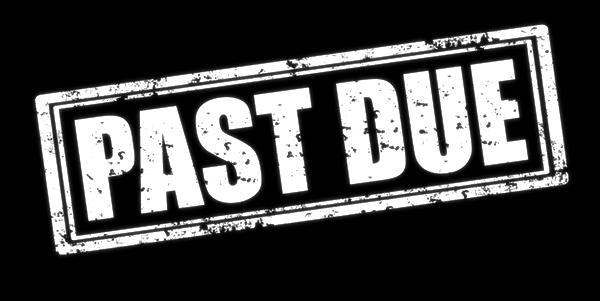Many business owners and contractors find themselves stuck with a client that will not pay their bill in a timely manner or even worse, refuses to pay.
Unfortunately, there are bad characters out there who take advantage of the investment and other’s work.
Is very sad to say, but Trump, the current president of the United States, has been accused in at least 60 lawsuits of not paying invoices for services small business provided his companies, according to with a report by USA Today, including during the construction of Trump Casinos.
“On just one project, Trump’s Taj Mahal casino in Atlantic City, records released by the New Jersey Casino Control Commission in 1990 show that at least 253 subcontractors weren’t paid in full or on time, including workers who installed walls, chandeliers and plumbing”, wrote the USA Today reporter in June, 2016, just few months before of the election that brought Trump to power.
These characters are equal opportunity cheaters but they especially aim their efforts to take advantage of immigrant-owned businesses.
What can a business owner, contractor do to reduce the likelihood of being a victim?
We present some useful advice:
1.-Sit down with your client to discuss costs and payment terms before you start.
Invest time sitting down with your client to discuss all the costs involved in the project and your payment expectations. This also allows establishing a positive, customer service oriented relationship with your client.
2.-Contracts are really important
Always make your client sign a contract. This looks like an obvious step but you will be surprised how many individuals we have found in our practice who have not signed a contract for a work worth thousands of dollars.
Be familiar with the elements of the contract and make your client sign one. In spite of that, a verbal contract should be enough for an individual to claim payment but will be more difficult to enforce.
Approach a trusted business lawyer to craft a contract for you and customize the terms, especially if the project is complex or involves a significant investment
3.-Make it difficult to pay late
Set a pay for work schedule, with milestones for project advancement. When a milestone is completed, a payment should be received. Do not continue the work unless you receive the payment.
Additionally, establish with your clients a payment policy. Set a day for expected payment. If you do not get pay in 5 days, send a warning and by the 10th day of late payment, set a late payment fee.
4.-Document your work
Always keep a file of your projects with all the client’s contact information, contract(s), terms of service, etc.
Do not hesitate to additionally document with pictures of your project, text messages, e-mails and all evidence you can gather of your work and investment in the project.
If you get stuck by with an unpaid invoice, you may need all the evidence to present in court.
5.-Use certified, return receipt mail.
When a client refuses to pay or acknowledge the debt, mail certified communications which he/she must sign to receive.
This is a smart move since the certified-return receipt becomes an official document you can present in court, all stamped by a government agency, the United States Postal Service (USPS).
6.-Engage a lawyer
If the client refuses to pay, in spite of your efforts, engaging a lawyer can be of great help to guide you into the next steps.
We are proponents of arbitration and negotiation. A law professional can negotiate payments for the work, and settle the dispute out of court.
It is easier to accomplish this if you add a mandatory or voluntary arbitration clause in your contract.
Consult with a lawyer about how to engage in arbitration
7.-Take the client to court
You must consider this last course of action and by this time is better to have a lawyer by your side. Give your client the opportunity to settle the dispute out of court. It will be in his or her best interest to fix the issue amicably. Depending on the amount your client owes you, you can take the dispute to small claims court or municipal court.
Do not feel bad to use the tools the judicial system provides to all and engage a lawyer if you need guidance to exercise your rights to a fair payment for your work and efforts.
Attorney Marcos E. Garciaacosta is sensible to the small business community’s issues and is ready to provide expert advice at any step of the process.
Contact him at (480) 324-6378 for a consultation.
